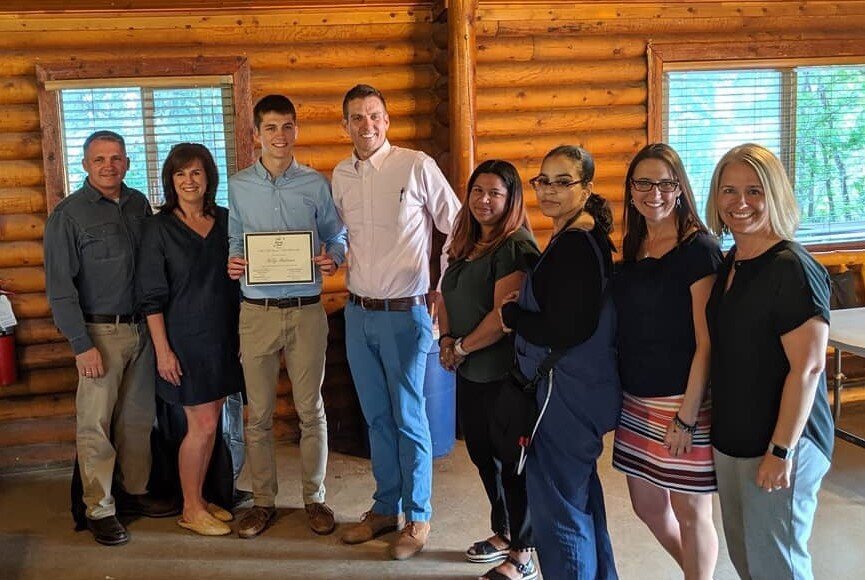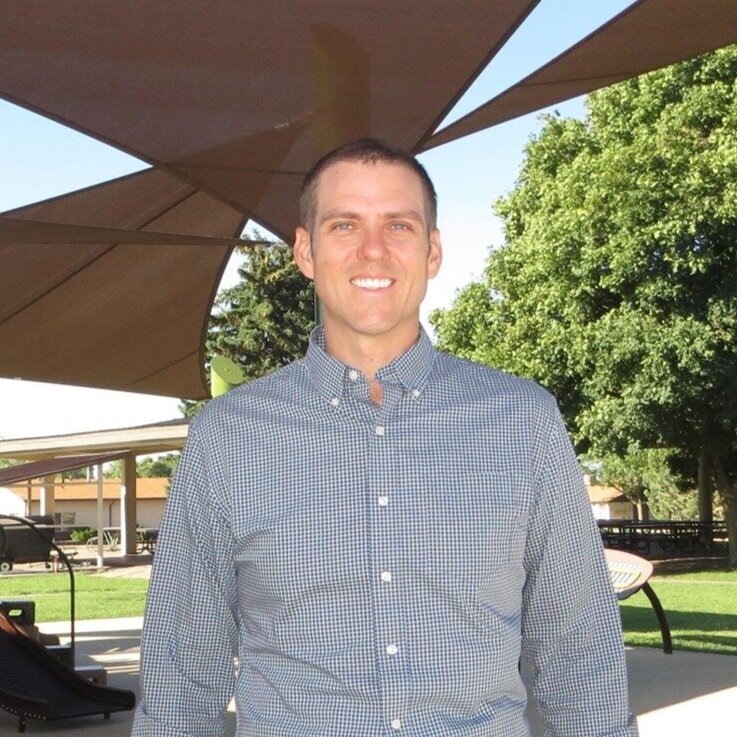How to Find Your Way as a Male Military Spouse
“As I stood alone at the spouses’ club event, I felt confident on the outside, but at the same time I couldn’t help but feel inconsequential, isolated, and invisible. I was feeling the same emotions nearly every one of the 55,000 men married to military service members has felt at some point. I was not purposefully excluded, but I was certainly not included either.” ~Mike Peters
Twelve years ago, I walked into my first spouses’ club welcome event and was promptly asked “Are you lost?” I was not lost, but I was not welcomed either. Out of over one hundred spouses, I was the only man and I felt as out of place as that sounds. Apparently, young men did not usually walk into a military spouse welcome event. Twenty-three-year-old me confidently thought—I had read the flier, I was a military spouse, I knew what I was walking into—but in truth I didn’t really know. After an hour of awkward invisibility in a room full of women, I was ready to head to the door and write off the whole “get-involved-meet-people-thing.” To top off the awkward situation, I won the door prize drawing: a wonderful basket of Mary Kay makeup.
My story is not unique to me. These stories are told countless times by countless men, usually covered with a half-hearted smile, but each time the unspoken result is the loss of a community connection. This community connection, which encourages the active process of becoming aware of and making choices toward a healthy and fulfilling life, is a vital step in the journey to wellness as a military spouse.
OVERCOMING FEELINGS OF INVISIBILITY
As I stood alone at the spouses’ club event, I felt confident on the outside, but at the same time I couldn’t help but feel inconsequential, isolated, and invisible. I was feeling the same emotions nearly every one of the 55,000 men married to military service members has felt at some point. I was not purposefully excluded, but I was certainly not included either. As fate would have it, a chance meeting changed my experience. The only person who knew me walked up to me and encouraged me to volunteer. Suddenly I mattered, and I had a mission. I was no longer invisible, isolated, and inconsequential.
Individually we handle our lives, our roles, and our struggle admirably, but as a group male service member spouses are struggling to seek and find the support and resources needed to increase our wellness. There’s uncomfortableness with being a male spouse in a military wife world. We find ourselves as an uncommon minority within the military family culture. We exist in rooms of fifty, one hundred, or even two hundred people and although our gender is different we have many shared experiences. While the culture is shifting, it can inadvertently and blatantly raise barriers to including men. Male military spouses need to find ways to connect to, and participate with, the broader military community.
HOW TO CONNECT
1. You Have to Get Out There. Attend spouse events, find a workout group, go to play groups, join the Family Readiness Group or Key Spouse meetings, and attend Fleet and Family Readiness. Simply meet people and represent who you are proudly—a man married to a service member. Even if you feel as if you’ll be the only male spouse there or feel the event is geared toward female spouses, you should still show up. Even if you think that it won’t matter, you should still go because you will forge a path for the men coming behind you. Offer to become a part of the organization. You might have some fun.
2. Find Your Mission. Find a way to make a difference and an impact. It could be in yourself, in your family, an organization, or your community. Finding your mission will help you find the “dignity of labor.” Your mission can be focused inward through exercise, education, or meditation/prayer. Focus on building the best you in terms of mind, body, and spirit so you can be healthy, resilient, and committed. You can focus outward on your family to raise good citizens in your children and support your spouse. Your mission could focus on your career, but if unemployment or underemployment is an issue (it is with nearly every military spouse at some point) volunteering fills the need for a mission in a unique and often fulfilling way. Don’t just join your spouse’s unit’s Key Spouse program for Air Force, Ombudsman for Navy/Marine, or Family Readiness Group for Army; volunteer to lead them. Non-command organizations are great opportunities to find a role with impact. Some organizations focused on military-specific issues where you can volunteer are: The Military Spouses Advocacy Network (men can mentor other new male military spouses), InDependent (focused on all spouses’ wellness), Blue Star Families, and Hiring our Heroes. Wherever you are in your life, try to find a mission that will better yourself, your family, and your community.
3. Be a Leader. Be the leader and mentor you never knew you could be. You do NOT have to be in a traditional leadership role to be a leader. By simply showing up and engaging in your shared military family culture you can lead. Our community of 55,000 male military spouses needs leaders. Realize how important you are to yourself, your family, and your community. Your past may be filled with less than welcoming interactions and you may have been asked, “Are you lost?” But keep going. You never know who you are inspiring.
Wellness, happiness, health, and life in general require action. You have to be daring, go outside your comfort zone, and embrace better health and fitness. It takes confidence to slow down, to pray or meditate, to ask for help, to do something challenging, to meet new people, and to change. Former President Theodore Roosevelt wrote, “It is not the critic who counts; not the man who points out how the strong man stumbles, or where the doer of deeds could have done them better. The credit belongs to the man who is actually in the arena, whose face is marred by dust and sweat and blood; who strives valiantly; who errs, who comes short again and again, because there is no effort without error and shortcoming; but who does actually strive to do the deeds; who knows great enthusiasms, the great devotions; who spends himself in a worthy cause; who at the best knows in the end the triumph of high achievement, and who at the worst, if he fails, at least fails while daring greatly, so that his place shall never be with those cold and timid souls who neither know victory nor defeat.”
Do NOT be a cold and timid soul. Get out there, find your mission, and be a leader.
ABOUT MIKE
Michael has 12 years of experience as a military spouse, advocate, and writer. His passion is strengthening the sense of community within the military spouse world. Empowering ALL military families to live their best lives provides him with enormous gratification. Focusing on including male spouses in the discussion of support for military spouses has become his focus. To that end, he created an All-Inclusive Spouses Club, teaming up to build an All-Abilities playground. He was honored as a Military Spouse of the Year winner for his efforts. He has the unique honor of being a military dependent his entire life; PCSing 15 times, attending 7 different schools, and forming countless friendships. He currently is a stay-at-home dad in Northern Virginia with his active-duty wife and two wonderful kids.














